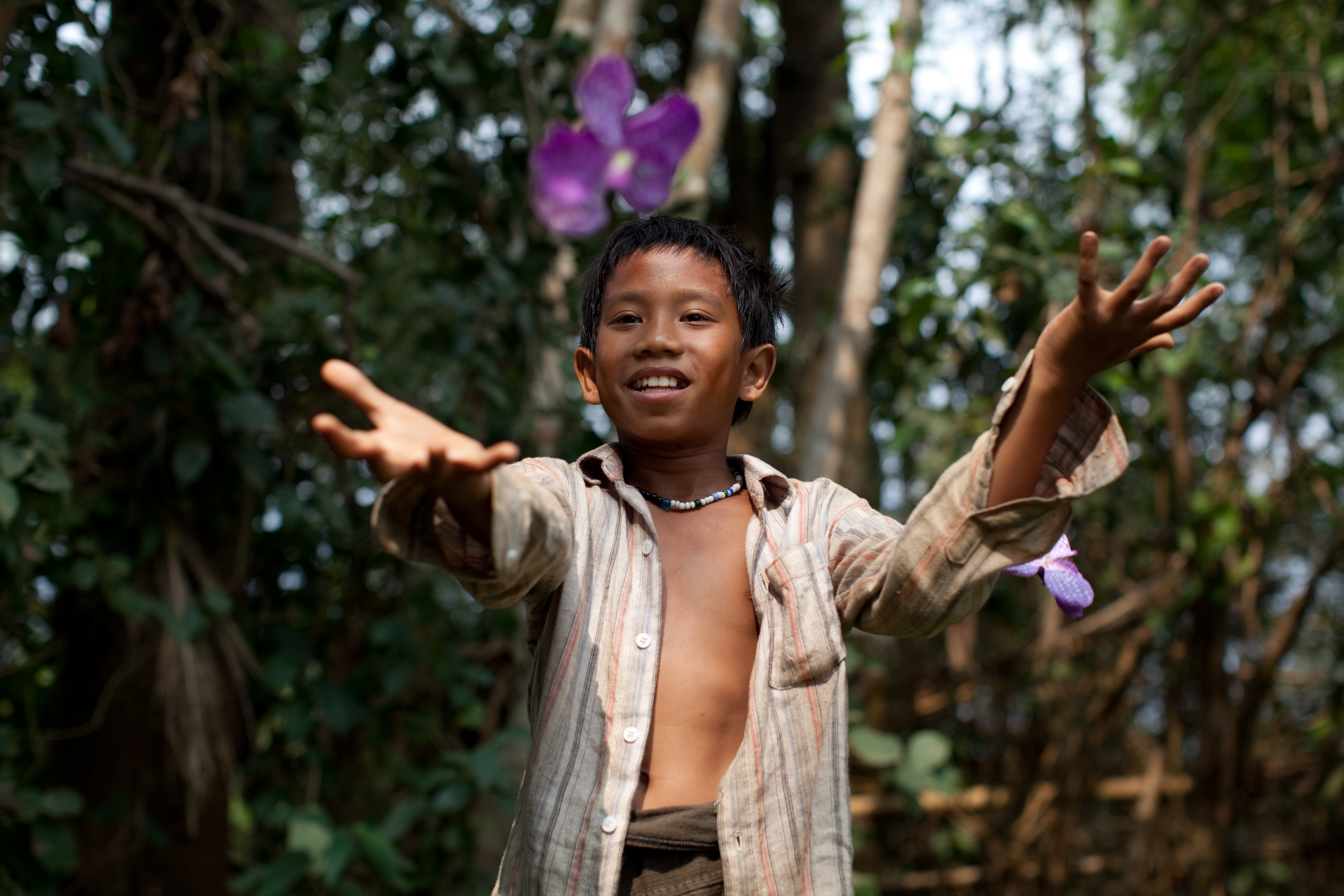The Rocket
Opens Fri., Feb. 21 at Varsity. Not rated. 96 minutes.
Written and directed by an Australian, Kim Mordaunt, this familiar little drama is set in a very unfamiliar place: Laos, a footnote to the Vietnam War, a country long isolated and impoverished by its rulers, far from the tourist beaches of Southeast Asia. Mordaunt filmed a 2006 documentary in Laos, Bomb Harvest, about Australians removing dangerous old war ordnance; now he returns to make this first feature with an indigenous cast. The Rocket is a case of ethnography prevailing over rudimentary story (almost a fable, really): You’ve seen this film before, only not here.
In a prologue we learn that newborn Ahlo is considered cursed because he’s delivered with a twin brother. Drown them, the very traditional grandmother (Bunsri Yindi) commands; but Ahlo’s twin is stillborn, so he’s spared. Ten years later, cheerful Ahlo (Sitthiphon Disamoe, a former street urchin) is taken by father Toma (Sumrit Warin) to visit a giant, Western-backed hydroelectric dam, which also has a twin and bears a curse. That new dam will displace Ahlo’s family and village, so the government simply trucks the villagers down to the lowlands, without compensation or new housing.
Among the new refugees Ahlo encounters are cute 9-year-old Kia (Loungnam Kaosainam) and her eccentric, drunken uncle (Thep Phongam), who worships James Brown—right down to the purple suit and pompadour. Kia and her uncle squat in an unfinished building, surrounded by people with electricity, cell phones, and scooters. Yet society has no interest in these dispossessed peasants, so like the Okies in The Grapes of Wrath.
There will be tragedy and triumph for Ahlo’s family, and the plot hinges on an unlikely (but real) homemade rocket competition, a kind of pagan rain festival that suggests a culture far older than the rusting U.S. bombs that Ahlo and company carefully scavenge for rocket propellant. (Yes, it’s as dangerous as it sounds.) When Ahlo swims in the dammed river, he sees an ancient, drowned temple, its Buddhist idols forgotten yet serene. Collecting bat guano in a cave (again, for his rocket), he encounters an old woman who might well be a witch—like his grandmother, for that matter, who gradually sells the beads stitched to her hat to feed the family. There are low-paying factory jobs in the city, but Ahlo’s father resists: Land is still sacred to these wanderers, and his family refuses to sunder its roots to the soil.
bmiller@seattleweekly.com








